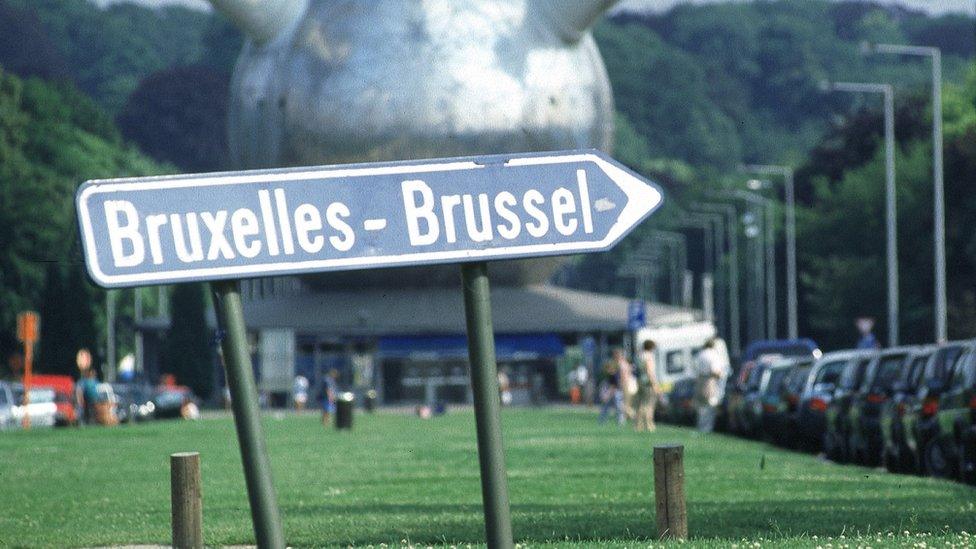EU summit: Leaders stress unity on Rome anniversary
- Published
Europeans take to streets on Treaty of Rome anniversary
European Union leaders have stressed the need for unity at a celebration in the Italian capital marking 60 years since the Treaty of Rome was signed.
Twenty-seven European Union countries, not including the UK, signed a new declaration to honour the 1957 treaty, which led to the bloc's foundation.
With Brexit looming, UK PM Theresa May is not attending the celebrations.
European Commission head, Jean-Claude Juncker, spoke of a new mood of optimism about the way forward.
"The atmosphere is now such that we can approach this with confidence," he said, referring to the future of the bloc as Britain leaves.
Mrs May plans to launch the Brexit process on Wednesday by formally triggering article 50 of the Lisbon Treaty.
Pro-EU march in London goes silent for attack victims
On the Capitoline Hill, where the six original states signed the Treaty of Rome on 25 March 1957, the 27 leaders put their names to a declaration of unity.
"Prove today that you are the leaders of Europe, that you can care for this great legacy we inherited from the heroes of European integration 60 years ago," European Council President Donald Tusk said. "Europe as a political entity will either be united, or will not be at all."
Chancellor Angela Merkel of Germany described the signing of the declaration as moving. She also repeated the German position that different members of the EU could move at different speeds - a notion opposed by Poland.
"A Europe of different speeds does not mean that there is not a unified Europe.
"We clearly say that we want to go in the same direction, and there are some things non-negotiable like the single market, the four basic freedoms, that are our values of liberty, of freedom of opinion, of freedom of speech, of freedom of press, of freedom of religion, and that makes us strong, and we shall not compromise on that."
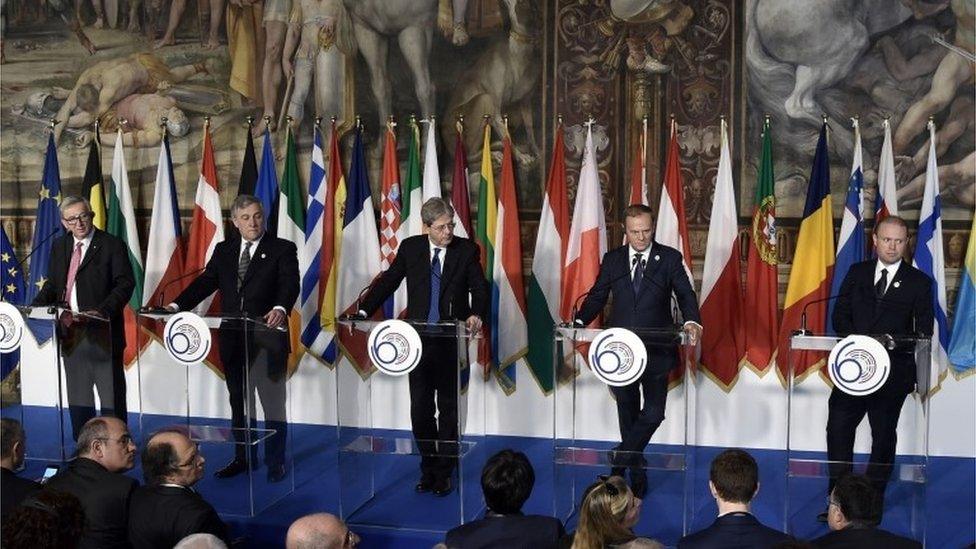
The declaration stresses unity in the bloc
The celebratory summit comes as the EU faces a range of challenges, including Brexit and the rise of populist parties.
Pro- and anti-EU protests took place in several member states. Thousands gathered for a march in London against Brexit; and in the Polish capital, Warsaw, thousands took to the streets to show solidarity with the EU.
In pictures: Marches in major cities mark EU anniversary
In Rome itself, there were a range of protests, both opposed to and in favour of the EU. The Eurosceptic Fratelli d'Italia met in a central university hall to declare that the bloc needed to be "shut down".
Security has been tightened across the Italian capital following Wednesday's terrorist attack in London.
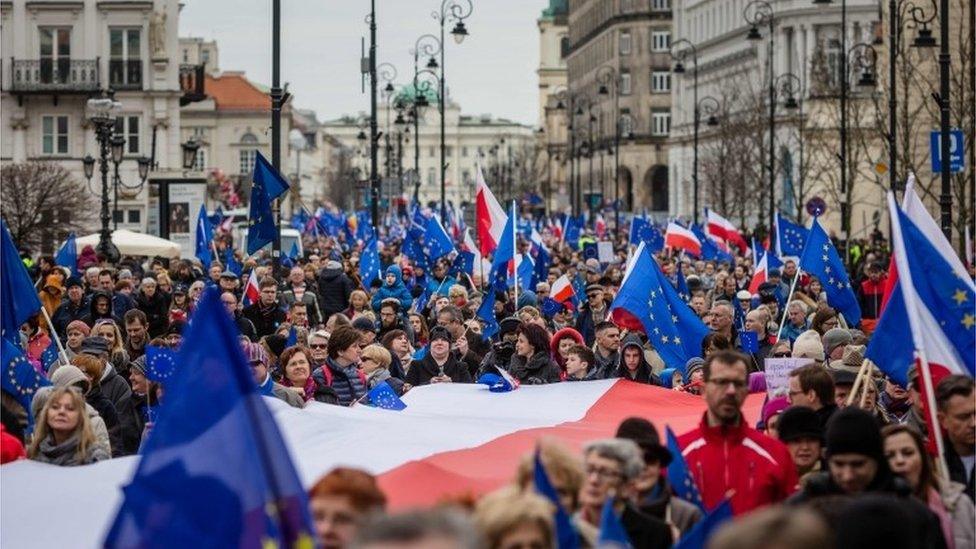
The pro-EU Committee for Democracy Defence (KOD) in Warsaw
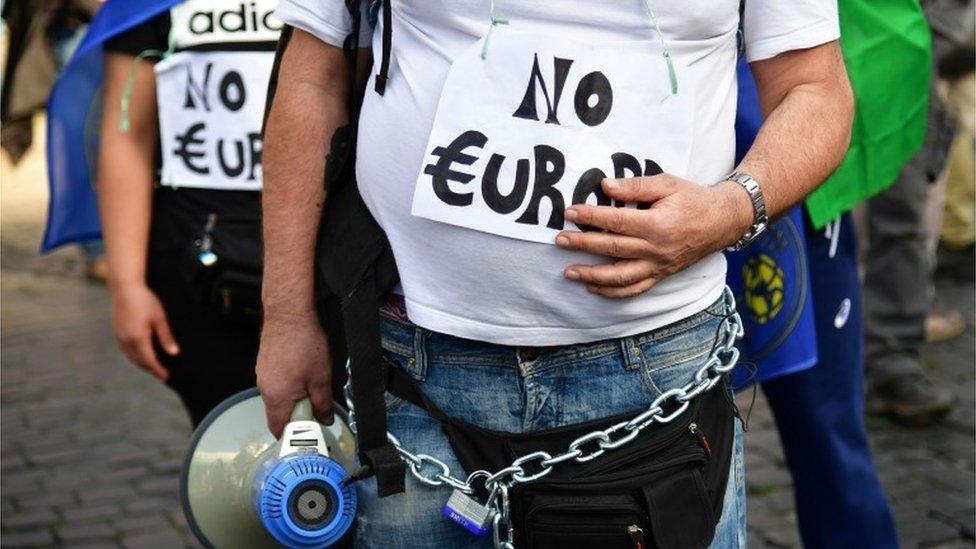
Anti-EU protesters in Rome
Pope Francis welcomed the leaders to the Vatican on the eve of the summit.
In a speech, he said that all bodies risk dying if they do not look ahead, and thus urged the EU to approach the future with renewed vigour.
He also warned against "false forms of security" promised by populists who want to wall themselves off, and instead urged greater solidarity.
The original Treaty of Rome launched the European Economic Community, the EU's forerunner.
It was signed by six countries: Belgium, France, Italy, Luxembourg, the Netherlands and West Germany.
The US was among those countries that sent congratulatory messages to EU leaders.
"Together we look forward to another 60 years and more of shared security and shared prosperity," read the White House statement.
President Donald Trump has more often been critical of the union, calling Brexit a "good thing", and predicting more countries will follow suit.

The tough road ahead - by Damian Grammaticas, Europe correspondent
In a new Declaration of Rome, the 27 countries are reaffirming their shared desire to continue with what is a greatly expanded and deepened union.
But there are huge challenges.
The UK's looming exit is the Union's biggest setback ever.
And after a decade of crises and sense of growing threats at home and abroad, European leaders are looking for ways to reinvigorate their project, but struggling to find a united way forward.

- Published25 March 2017
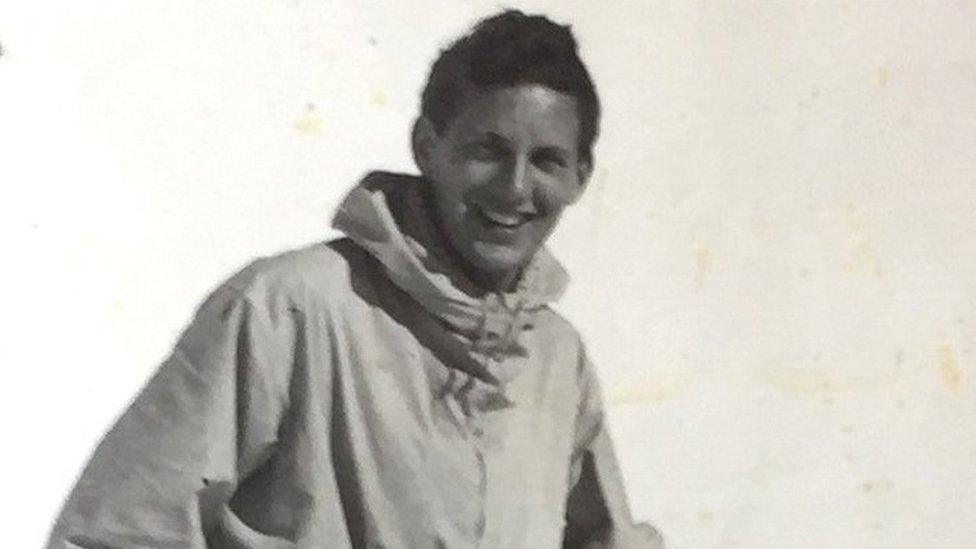
- Published1 March 2017
